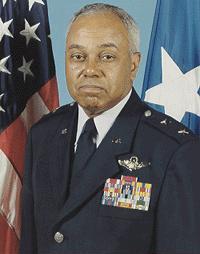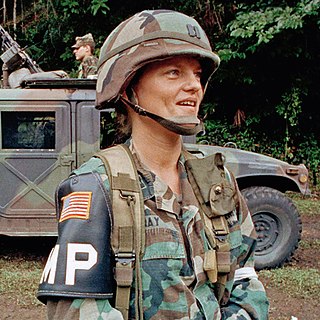
The University of North Carolina at Greensboro is a public research university in Greensboro, North Carolina. It is part of the University of North Carolina system. UNCG, like all members of the UNC system, is a stand-alone university and awards its own degrees. UNCG is accredited by the Southern Association of Colleges and Schools Commission on Colleges to award baccalaureate, masters, specialist and doctoral degrees. It is classified among "R2: Doctoral Universities – High research activity".

Greensboro College is a four-year, independent, coeducational liberal-arts college in Greensboro, North Carolina. It is affiliated with the United Methodist Church and was founded in 1838 by Rev. Peter Doub. The college enrolls about 1,000 students from 32 states, the District of Columbia, and 29 countries.

The United States Naval Reserve , better known as the WAVES, was the women's branch of the United States Naval Reserve during World War II. It was established on July 21, 1942 by the U.S. Congress and signed into law by President Franklin D. Roosevelt on July 30. This authorized the U.S. Navy to accept women into the Naval Reserve as commissioned officers and at the enlisted level, effective for the duration of the war plus six months. The purpose of the law was to release officers and men for sea duty and replace them with women in shore establishments. Mildred H. McAfee, on leave as president of Wellesley College, became the first director of the WAVES. She was commissioned a lieutenant commander on August 3, 1942, and later promoted to commander and then to captain.

Charles Duncan McIver was the founder and first president of the institution now known as The University of North Carolina at Greensboro.

Delta State University (DSU) is a public university in Cleveland, Mississippi, in the Mississippi Delta.

Evelyn Patricia Foote is a retired United States Army officer. She served from 1959 to 1989, rising to the rank of brigadier general in 1986, and holds many firsts for women in the United States Army.
Hermene Warlick Eichhorn was an American musician and composer. She was born in Hickory, North Carolina.

Mildred Inez C. Bailey was a United States Army officer, who served as the eighth director of the Women's Army Corps from August 1971 until July 1975. She was the third woman in United States Army to reach the rank of brigadier general.
Elizabeth Nona Ann "Betty" Ray was a career officer in the United States Army and United States Air Force, most notably serving as director of Women in the Air Force (WAF) from 1961 to 1965.

Nuclear Power School is a technical school operated by the U.S. Navy in Goose Creek, South Carolina to train enlisted sailors, officers, KAPL civilians and Bettis civilians for shipboard nuclear power plant operation and maintenance of surface ships and submarines in the U.S. nuclear navy. The United States Navy currently operates 95 total nuclear power plants including 71 submarines, 11 aircraft carriers, and 4 training/research prototype plants.

The UNCG Spartans men's basketball team represents the University of North Carolina at Greensboro in NCAA Division I. The school's team currently competes in the Southern Conference.

Joseph Alfred McNeil is a retired major general in the United States Air Force who is best known for being a member of the Greensboro Four; a group of African American college students who, on February 1, 1960, sat down at a segregated Woolworth's lunch counter in downtown Greensboro, North Carolina challenging the store's policy of denying service to non-white customers.

Willa Beatrice Player was an American educator, college administrator, college president, civil rights activist, and federal appointee. Player was the first African-American woman to become president of a four-year fully accredited liberal arts college when she took the position at Bennett College for Women in Greensboro, North Carolina.

Janet Lilly is an American modern dancer and choreographer. She was a principal dancer for Bill T. Jones and Arnie Zane's company from 1983–1991. She currently serves as the Director of the UNCG College of Visual and Performing Arts, School of Dance at the University of North Carolina at Greensboro. From 2012–2014 she was the president of the Board of Directors of Iyengar Yoga National United States Association.

Linda L. Bray is a former U.S. Army officer known for being the first woman in the United States military to lead troops into combat. She served in the Panama Invasion and during the Cold War. Bray's career started in 1982 and ended with her retirement in 1991.
Ana Paula Höfling is an American dancer, dance scholar, academic, and capoeirista.
Larry Lavender is an American dancer and dance scholar. He is the author of the book Dancers Talking Dance: Critical Evaluation in the Choreography Class.
Jill Green is an American dance educator and scholar who originated the Social Somatic Theory. Green served on the faculty at the University of North Carolina at Greensboro and was co-editor of Dance Research.
Robin M. Gee is an American dancer, choreographer, and filmmaker. She serves on the faculty at the University of North Carolina at Greensboro as an associate professor of dance in the UNCG College of Visual and Performing Arts.
The English Department of the University of North Carolina Greensboro (UNCG), established in 1893, is housed in the university's College of Arts and Science (CASA) and offers a Bachelor of Arts, Master of Arts, PhD, and multiple minors.












